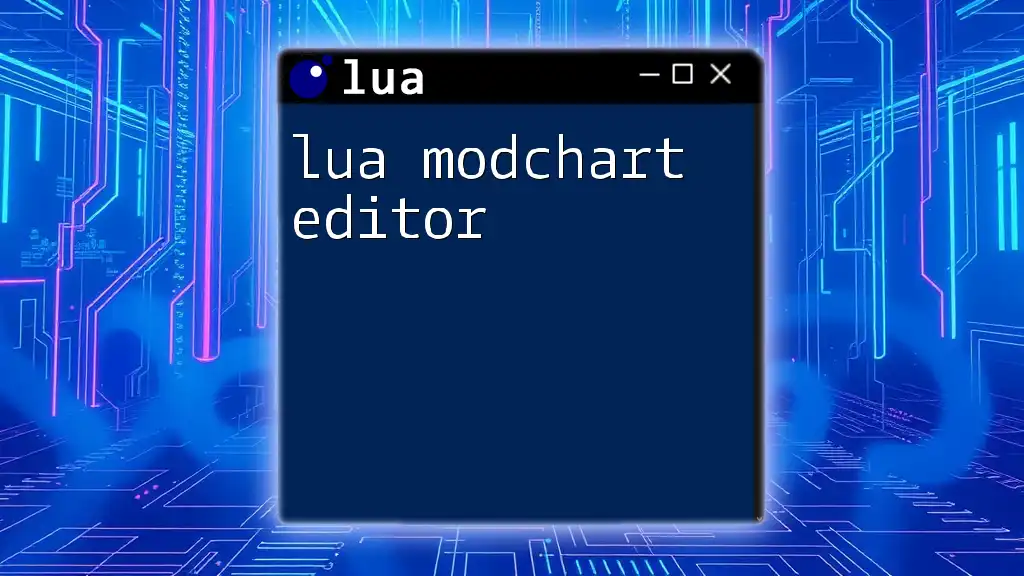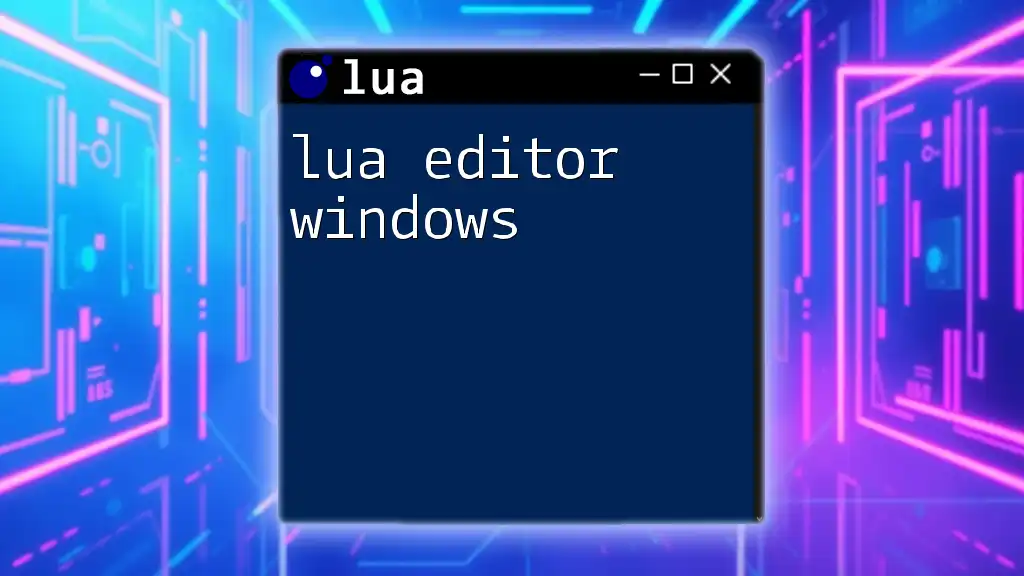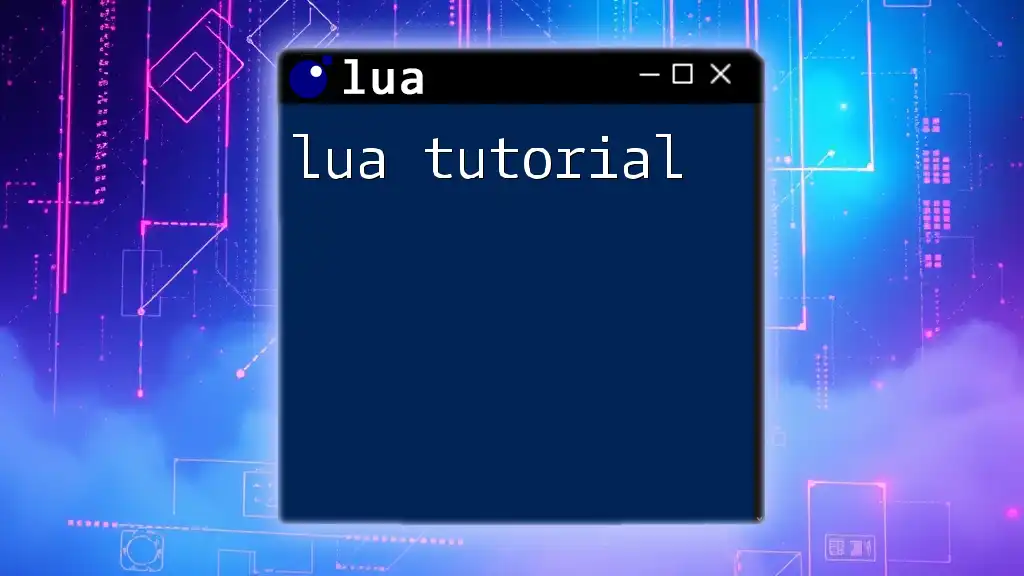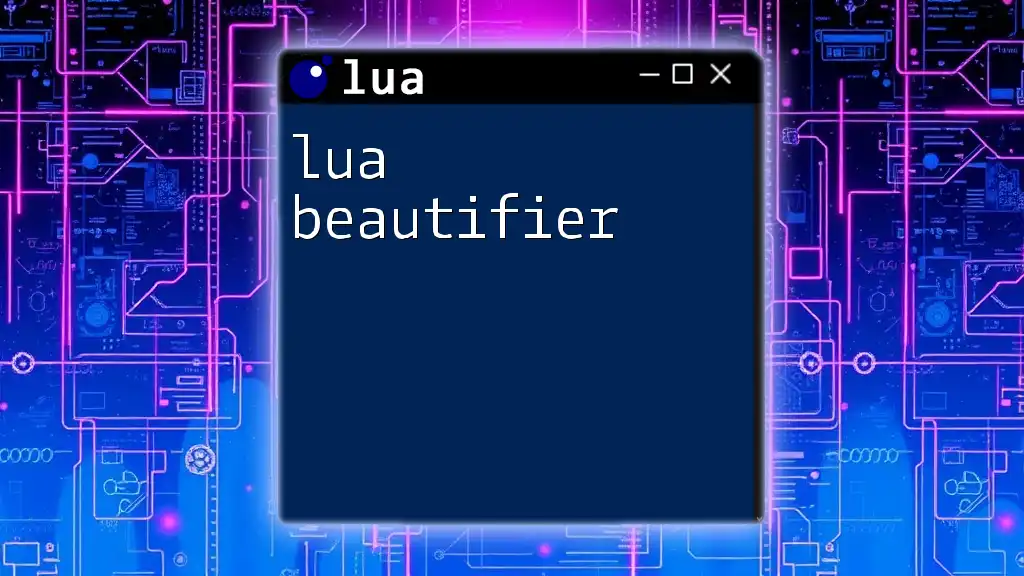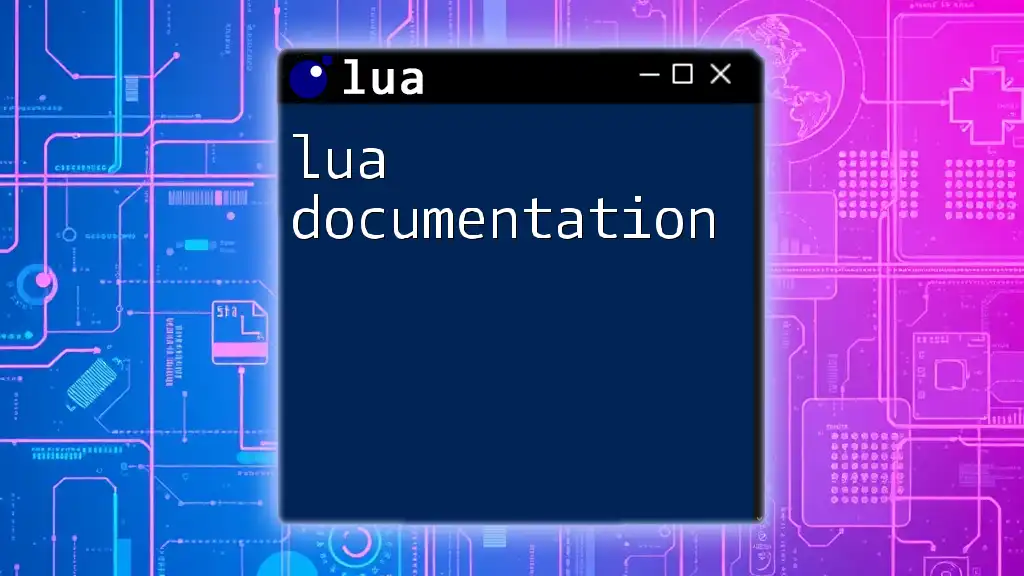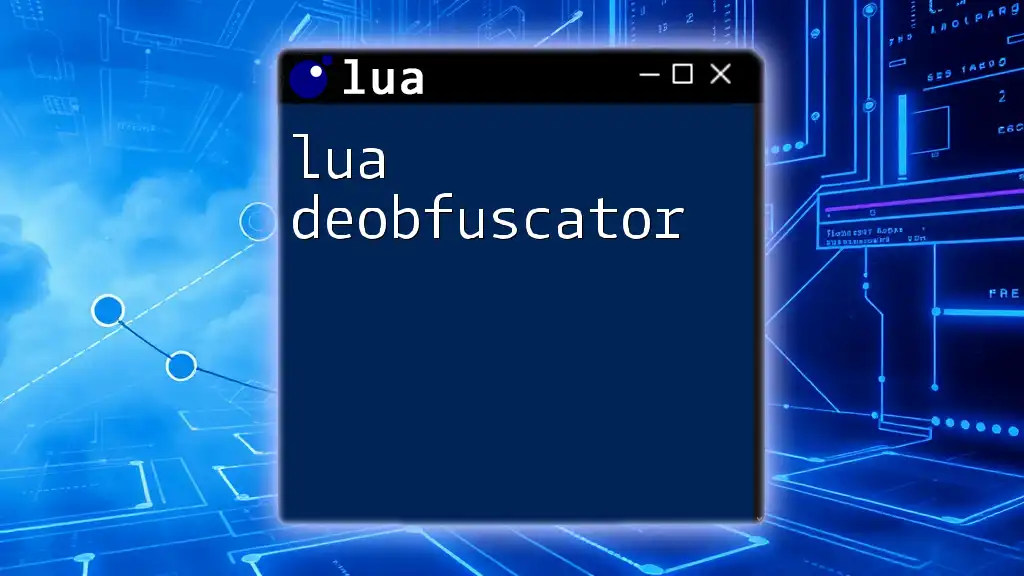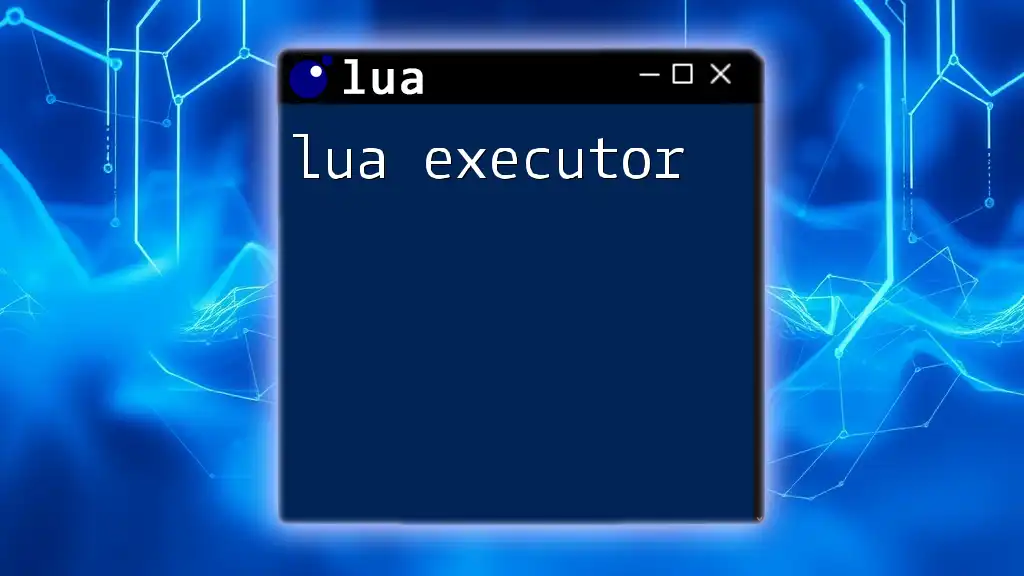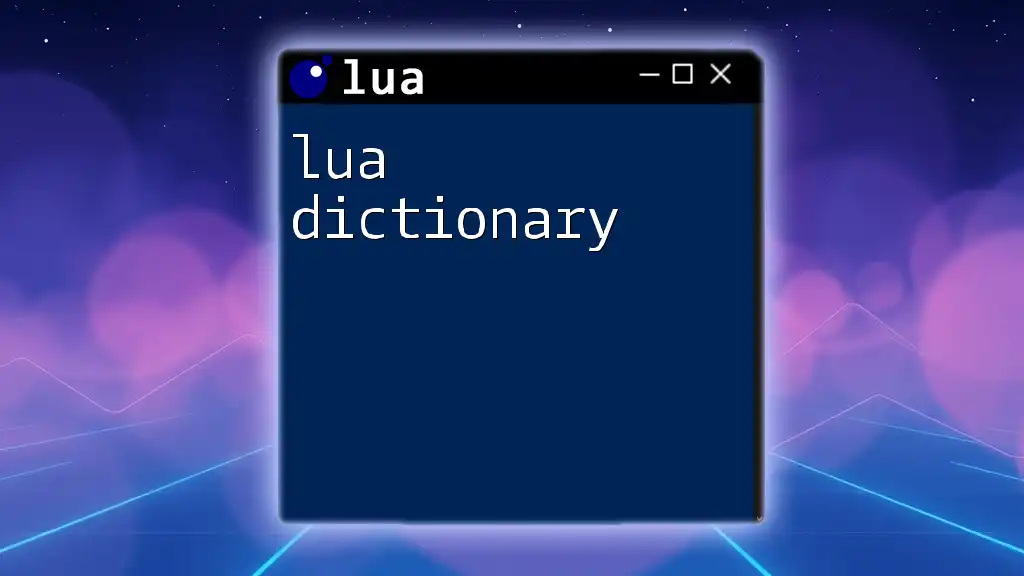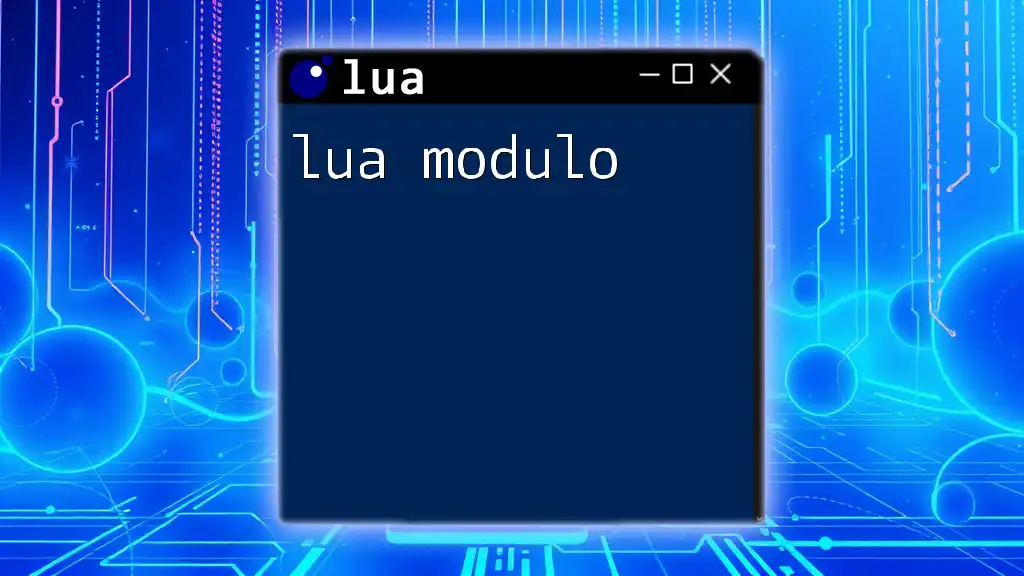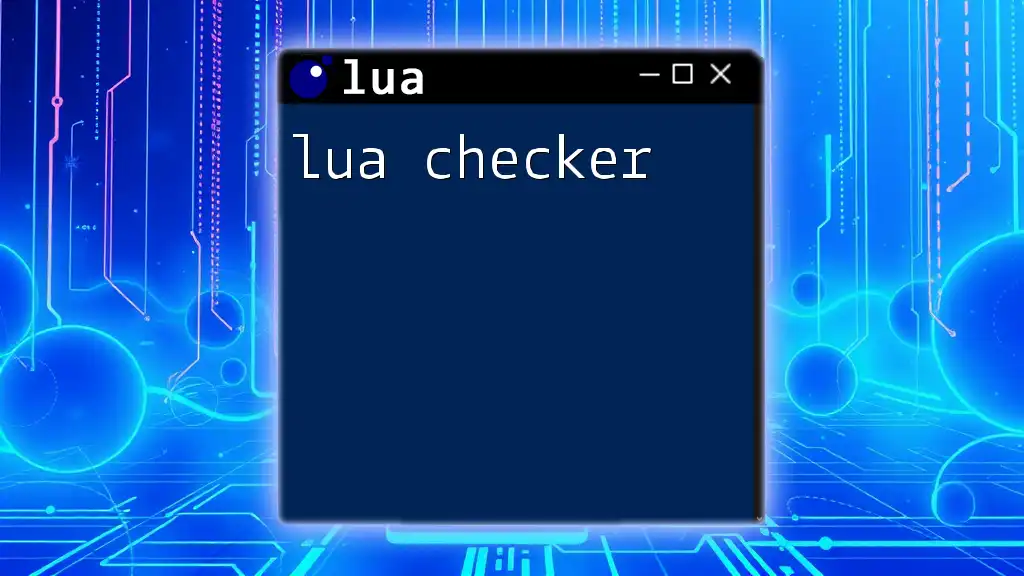The Lua modchart editor is a tool that allows users to create and customize animated mod charts in rhythm games, using concise Lua commands for precise control over visual elements and timing.
Here’s a simple code snippet demonstrating how to define a new animation in a modchart editor:
function onCreate()
makeAnimatedLuaSprite('character', 'character_path', 100, 200)
addAnimationByPrefix('character', 'dance', 'dance_animation_prefix', 24, true)
objectPlayAnimation('character', 'dance', true)
addLuaSprite('character', true)
end
What is a Modchart Editor?
A modchart editor allows users to customize game charts, effectively modifying gameplay mechanics, animations, and sound interactions. This tool is crucial for modders aiming to create unique experiences within games. In many popular games, modchart editors utilize Lua, a lightweight scripting language known for its simplicity and flexibility, to enhance user creativity.
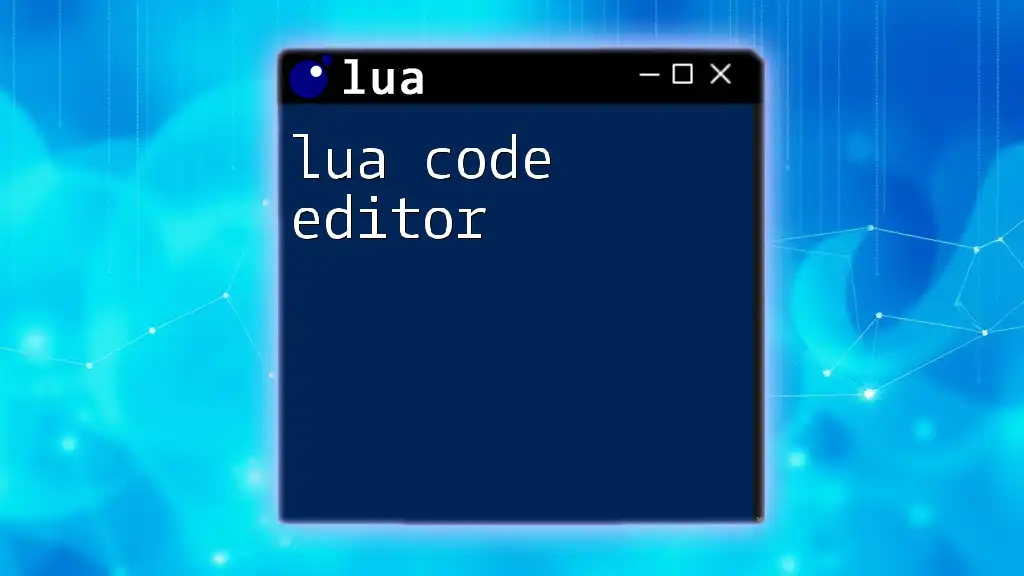
Getting Started with Lua
Understanding Lua Basics
Lua is an embeddable scripting language renowned for its straightforward syntax and powerful functionality. It serves as an excellent choice for modchart editing due to its rapid execution and ease of learning. Understanding the fundamentals of Lua is essential for any aspiring modder.
Setting Up Your Lua Environment
To start coding in Lua, you must choose a suitable environment. Popular options include:
- LuaRocks: A package manager for Lua modules, facilitating easier management of libraries.
- ZeroBrane Studio: A lightweight IDE that offers debugging tools and great support for Lua development.
- Visual Studio Code: With the right extensions, this versatile editor can also support Lua scripting.
Installation is straightforward—visit the official Lua website, download the appropriate version for your operating system, and follow the installation instructions. Once installed, you can create your first script to familiarize yourself with the environment.
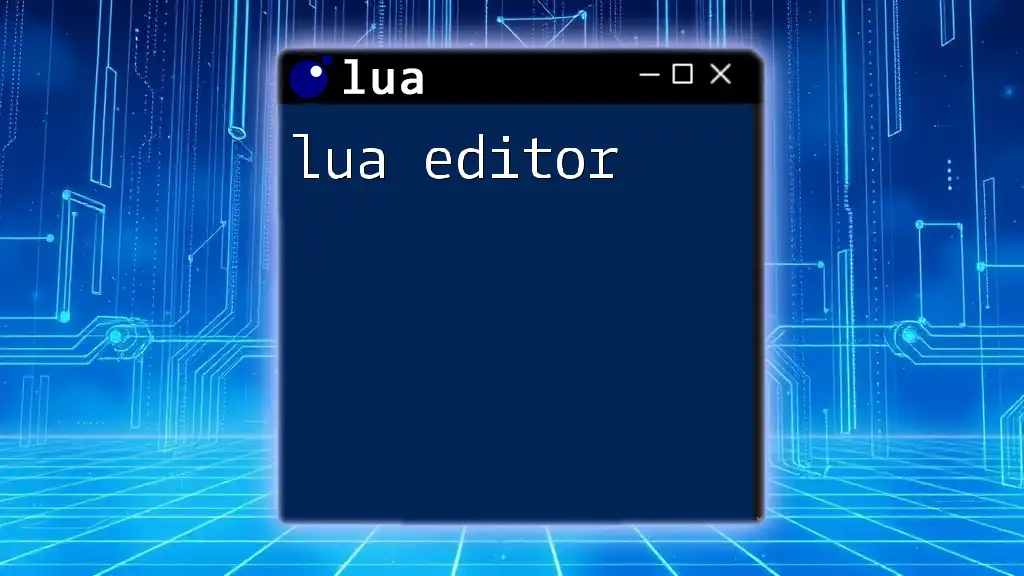
Exploring the Lua Modchart Editor
Overview of Modchart Editing Process
The modchart editing process involves creating scripts that directly influence game mechanics, visuals, and sounds. In this process, Lua enables seamless integration of various elements, allowing for a more dynamic and personalized gaming experience.
Key Concepts in Lua Modchart Editing
Lua Functions and Variables
Functions are fundamental to your modchart scripts, enabling you to encapsulate code and reuse it efficiently. Defining a function in Lua looks like this:
function yourFunctionName()
-- code goes here
end
Variables are used to store data, which can later be manipulated within your script. Declaring a variable in Lua is simple:
local variableName = value
Tables and Data Structures
Tables are the cornerstone of managing data in Lua. They function as arrays, dictionaries, or even objects, allowing you to store complex data structures effectively. For instance, you might create a table to hold mod chart properties:
local modChartProperties = {
noteSpeed = 1.0,
backgroundColor = "blue"
}
Essential Lua Commands for Modchart Editing
Basic Commands
Commands such as `addNote` and `setProperty` are vital to modchart creation. They allow you to define gameplay mechanics succinctly. Here’s how you might use these commands in a script:
addNote('noteType', time, xPosition, yPosition)
setProperty('player.x', newXValue)
Each command must be carefully placed within the flow of your script to achieve the desired outcomes.
Advanced Commands
As you become more comfortable, you can explore advanced commands like `luaRun` and `onStep`. The `luaRun` command executes another Lua script, while `onStep` triggers functions at regular intervals.
function onStep()
-- code to execute every step
end
This flexibility allows you to create intricate interactions within your modcharts.
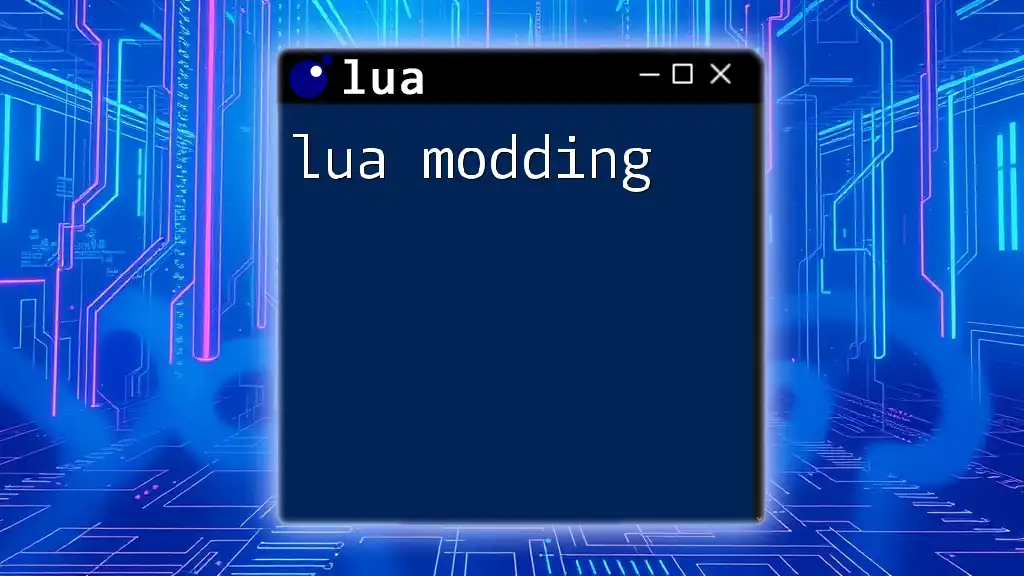
Creating a Simple Modchart
Step-by-Step Guide
To create a basic modchart, start by setting up your environment with the appropriate assets and libraries. Here’s a simple approach:
- Define Your Chart’s Structure: Outline the key elements, such as notes and properties.
- Write Your First Script: Employ foundational commands to generate gameplay elements.
- Test It Out: Run the modchart in the game to see your changes in action.
Code Snippets and Examples
Here's a complete example of a simple modchart that modifies the player’s speed and changes background color during gameplay:
function onCreate()
setProperty('player.speed', 2.0)
setProperty('background.color', 'black')
end
In this snippet, `onCreate` sets the player’s speed when the chart starts, and changes the background color, showcasing how Lua controls different aspects of the game environment.
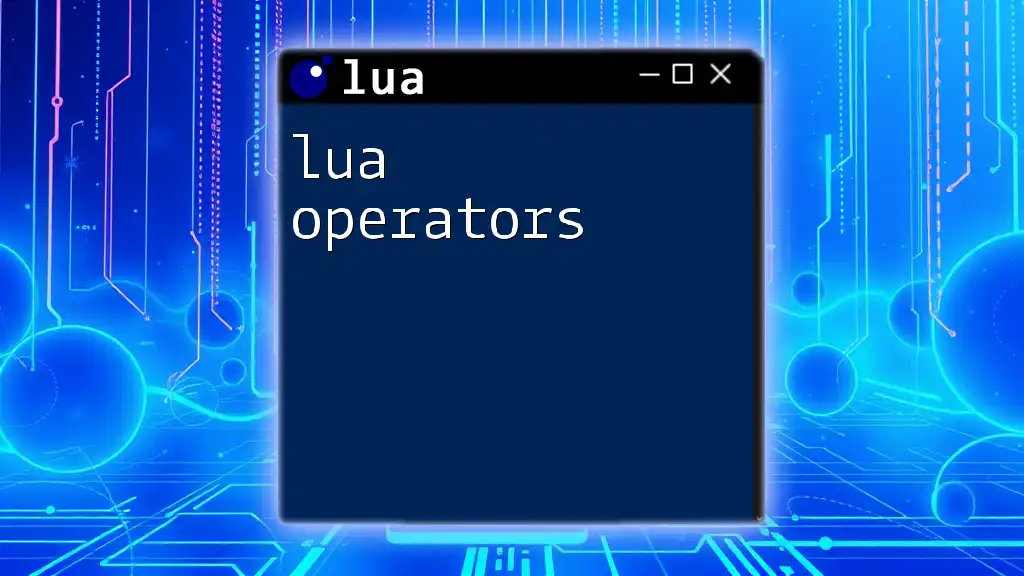
Integrating Visual Elements
Adding Graphics and Animations
Incorporating images can significantly enhance the players' experience. To add an image, you might use the following command:
makeLuaSprite('spriteName', 'imagePath', xPosition, yPosition)
addLuaSprite('spriteName', false)
This command creates a new sprite and adds it to the game, allowing for creative visual customization.
Audio Integration
Sound effects can enrich the gaming experience, too. You can manipulate audio through Lua with commands such as `playSound`:
playSound('soundFileName', volume)
This command allows you to define which sound to play and its volume, helping you create a more immersive atmosphere within your mod.
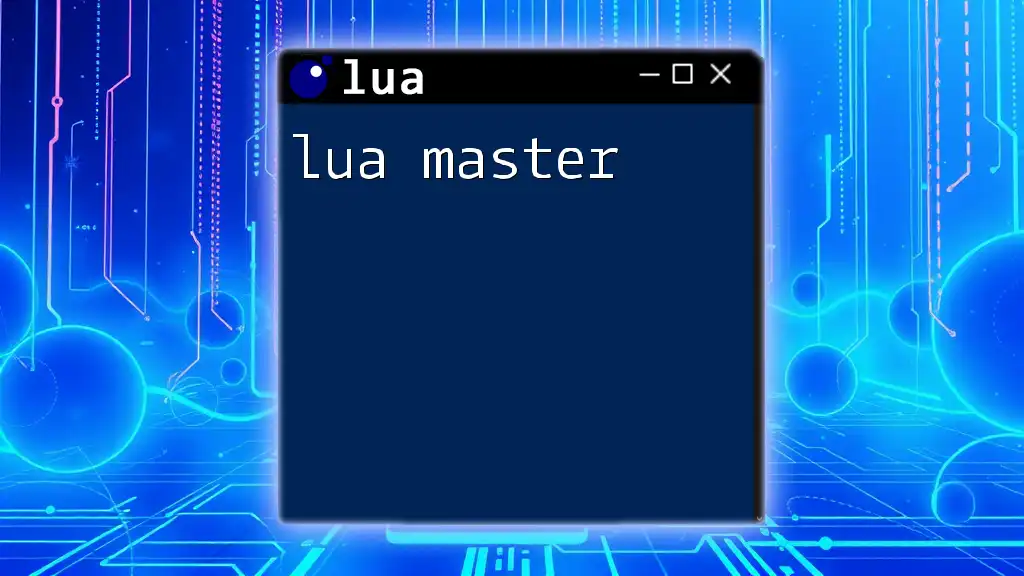
Debugging and Testing Your Modchart
Common Errors and Issues
As with any programming language, errors are part of the learning curve. Common issues include syntax errors, variables not being defined, or logic flaws in the script flow. Familiarize yourself with error messages to troubleshoot effectively.
Testing Your Modchart
Testing is crucial. Make sure to run your modchart frequently during development. Utilize debugging tools available in your Lua environment to isolate issues and optimize your code.
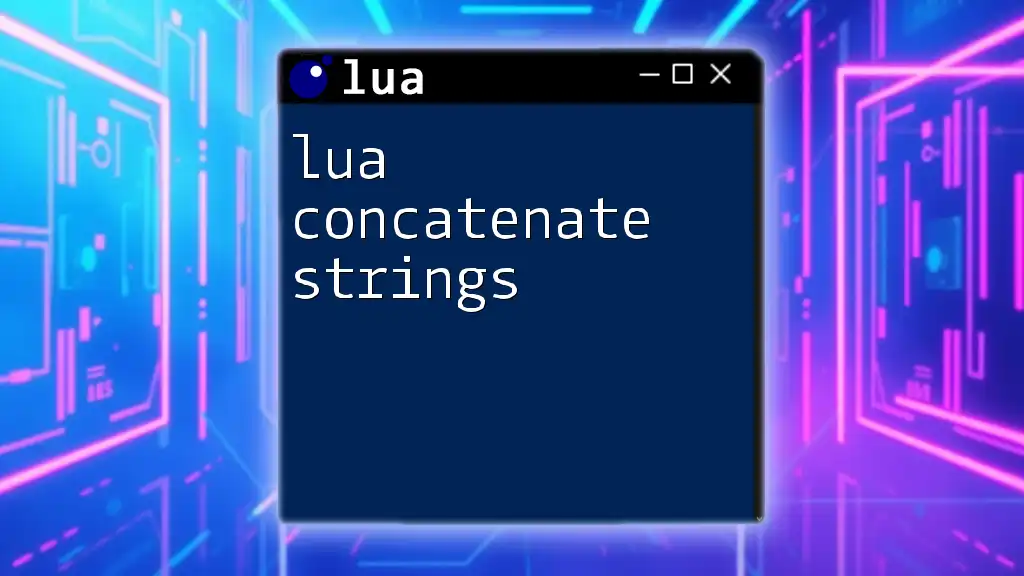
Tips and Best Practices for Modchart Editing
Writing Efficient Lua Code
When coding your modchart, aim for clarity. Use meaningful variable names, comment liberally, and keep your functions short and focused. This approach will not only aid your development process but will also make your code easier for others to understand.
Community Resources
Joining online forums and participating in the Lua modding community can provide invaluable feedback and support. Websites like GitHub or dedicated forums might offer additional resources and example code to inspire your projects.
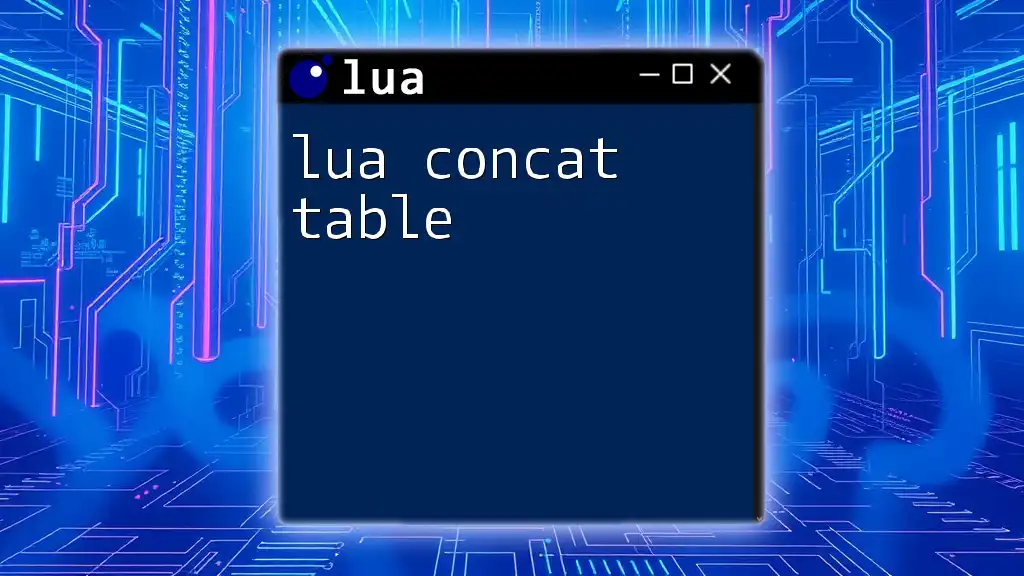
Conclusion
Learning Lua for modchart editing is a rewarding journey that opens doors to creativity in game modification. Armed with the knowledge of functions, commands, and community resources, you can craft unique gaming experiences. Embrace experimentation, and don't hesitate to share your creations with others in the modding community!
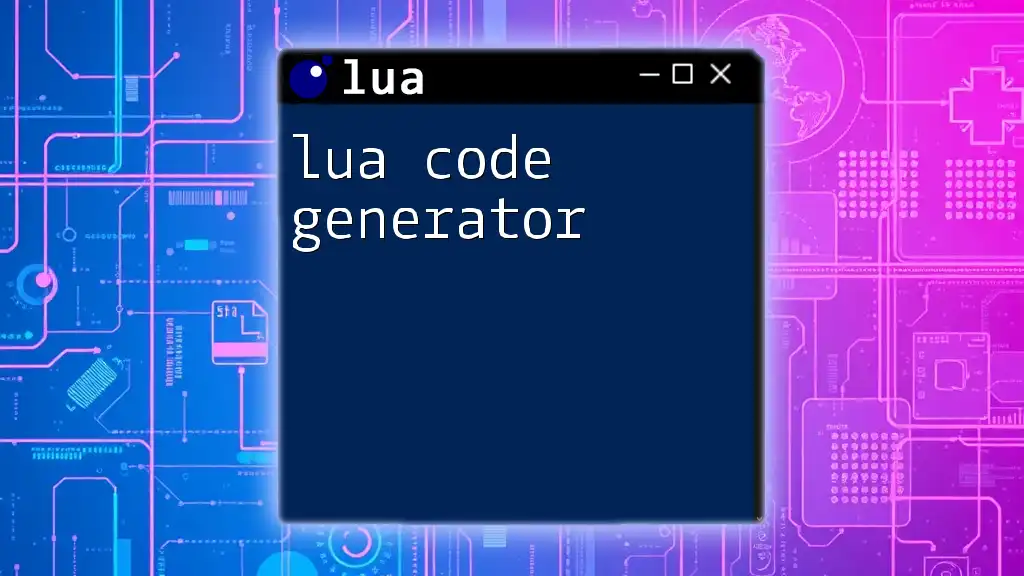
Further Reading and Resources
For more advanced knowledge, check out official Lua documentation and community tutorials focused on game modding. Continuous learning and experimentation are key to becoming proficient in using a Lua modchart editor effectively.
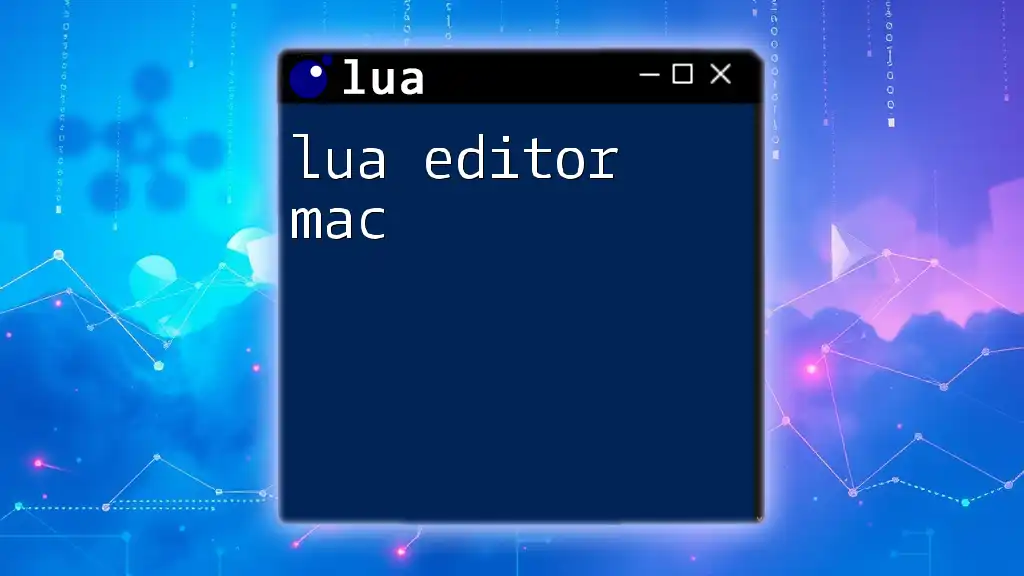
Call to Action
Join us on this exciting journey of Lua modding! Explore our upcoming courses and become part of a thriving community passionate about creativity and game design. Start your Lua journey today and transform your gaming experiences!

